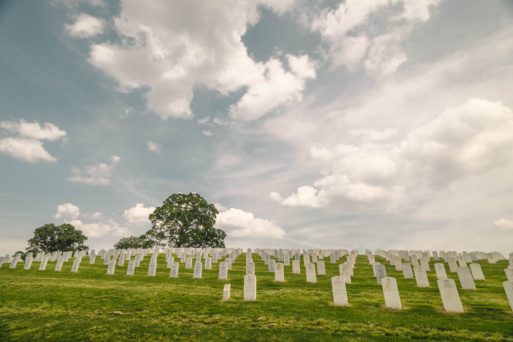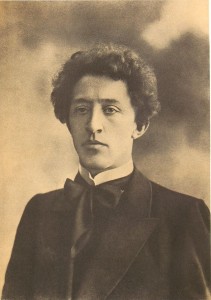 If you’ve ever experienced the grief of having lost a loved one after weeks, months or even years of suffering, chances are that you are no stranger to the commonly spoken phrase “at least they are no longer suffering.” While many would agree that these words are true, the underlying idea of this message—that a friend or family member’s last moments were that of suffering—is a harsh thought to bear. While Alexander Blok’s poem “Don’t Fear Death” is a complete celebration of this mentality, the beauty in his poem extends beyond the comforting words that we are used to hearing today. It is to show us that the anxiety that we feel for our inevitable demise is universal and it can come at any time for any reason, but we cannot halt our lives for having these fears.
If you’ve ever experienced the grief of having lost a loved one after weeks, months or even years of suffering, chances are that you are no stranger to the commonly spoken phrase “at least they are no longer suffering.” While many would agree that these words are true, the underlying idea of this message—that a friend or family member’s last moments were that of suffering—is a harsh thought to bear. While Alexander Blok’s poem “Don’t Fear Death” is a complete celebration of this mentality, the beauty in his poem extends beyond the comforting words that we are used to hearing today. It is to show us that the anxiety that we feel for our inevitable demise is universal and it can come at any time for any reason, but we cannot halt our lives for having these fears.
In Blok’s poem, the fear of death is flipped upside down as he writes, “Your death will come to you, and never/You shall be, else, a slave of life,/Just waiting for a dawn’s favor,/From nights of poverty and strife”(5-8). In the poem, his words are colored with more than just the intent of calming fear. Here death is accepted as an inevitable fate for all. We are not slaves to death, but rather, slaves to life, where the threat of ‘poverty and strife’ looms overhead. It is important to note that this poem, which was written later in Blok’s career as the October Revolution was brewing in Russia, takes on the apocalyptic climate that many Russians were feeling at this time. The suffering that many of his countrymen felt transcends individual strife and replaced it with the pain that many felt as they struggled to get by in day-to-day living.

Credit: Wikipedia
Blok’s poem extends beyond the comforting words that we are used to hearing today. It is to show us that the anxiety that we feel for our inevitable demise is universal and it can come at any time for any reason, but we cannot halt our lives for having these fears.
Compared to the suffering and fears that we all face in life, death takes on the more positive imagery of ‘dawn’s favor.’ In his final stanza, death takes the center stage as the great equalizer that can “build with you a common law,/One will of the Eternal Reign”(9-10). For his own people, taking into account the political climate of the time, death is a symbol of agency and change. Like the domino effect, the loss of one life begets the blooming of another. For many that are “slow/And everlasting deadly pain”(11-12), there is no greater hope than finding a release from conditions that cannot be changed. This grim call to action is heavily steeped in the climate from which it was born. But that leaves us with the question of whether or not the role reversal of the relationship between suffering and life and death is just as relevant today.
Related SevenPonds’ Articles:

 “Don’t Fear Death” by Alexander Blok
“Don’t Fear Death” by Alexander Blok


 How Dare You Die Now!
How Dare You Die Now!
 Debating Medical Aid in Dying
Debating Medical Aid in Dying
 “Help Me, Helen”
“Help Me, Helen”














